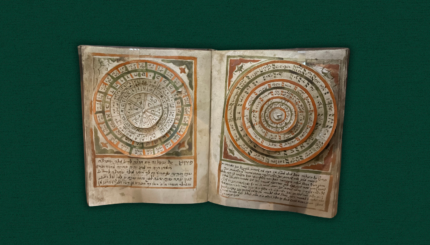A work ethic is the idea that diligence, discipline and self-restraint are virtuous, character-building behaviors. This notion is closely associated with the Protestant work ethic, a term coined by the German sociologist Max Weber in the early 20th century to describe the northern European culture that gave rise to capitalism and which was later brought to the United States by the first Puritan settlers. Its essential concept is that work is valuable for its own sake — not merely for what it creates or the money it earns.
This is a concept with few analogues in the Jewish tradition. Judaism has no commandment to work — though there is a commandment to rest on the Sabbath. Indeed, in Genesis, Adam’s punishment for having transgressed in eating from the Tree of Knowledge was that he would have to work for his sustenance: “By the sweat of your brow shall you get bread to eat,” God says. (Some read this verse not as a curse but as a reassurance that human dignity is not compromised by having to work.) In traditional sources, work is often regarded as necessary, and certainly better than idleness (which can lead to sin). But work as an intrinsic good does not appear to have much support in traditional sources.
One particularly extreme position in the is that of Rabbi Nehorai, who declares that he set aside all trades and taught his son only . However, the prevailing opinion appears to be more moderate. The rabbis of the Talmud are known to have worked at a variety of occupations, and immediately after Rabbi Nehorai’s comment, two other sages weigh in with the view that a father should teach his son a trade that is “clean and easy.” This notion — that one should work for one’s livelihood, just not too hard — is well captured in the view of Rabbi Shimon ben Elazar, who notes that animals do not have to work at trades to provide for themselves— presumably ignoring the fact that wild animals devote considerable effort to finding food and that domesticated ones are often put to work by humans. “If these, who were created only to serve me, earn their livelihood without anguish, then is it not right that I, who was created to serve the One Who formed me, should earn my livelihood without anguish?”
In addition to their concern that work ought not be too onerous, the rabbis of the Talmud were clearly worried that excessive pursuit of material well-being would distract from higher pursuits. Hillel cautioned that one who is too engaged with business cannot become wise. In Pirkei Avot, Rabbi Meir states unequivocally: “Minimize business and engage in Torah.”
With your help, My Jewish Learning can provide endless opportunities for learning, connection and discovery.
While concerned that work could interfere with Torah study, the rabbis nevertheless warned that idleness could lead to licentiousness or idiocy. A verse in Pirkei Avot states that one should “love work.” Expanding on that verse, the minor tractate Avot D’rabbi Natan includes this statement from Rabbi Yehuda ben Bathrya: “If a person has no work to do, what should he do? If he has a dilapidated yard or field, he should go and occupy himself with it.” In Pirkei Avot, Rabban Gamliel states outright that one should occupy himself both with Torah study and work: “Excellent is the study of the Torah together with a worldly occupation; for the exertion [expended] in both of them causes sin to be forgotten.”
Moreover, self-sufficiency is highly valued in traditional sources, even for rabbis. The Talmud in Pesachim records this statement of Rav: “Skin a carcass in the market and take payment, but do not say: I am a priest, or: I am a great man, and this matter disgusts me.” In Psalms, which is traditionally attributed to King David, it says: “You shall enjoy the fruit of your labors; you shall be happy and you shall prosper.” In the Mishneh Torah, Maimonides describes eight levels of charity, the highest being to grant a loan or a business partnership or helping the poor find work “until he is strong enough so that he does not need to ask others [for sustenance].”
Today, it is not uncommon for ultra-Orthodox men to eschew an occupation and engage in full-time Torah study. In Israel, various recent studies have shown that less than half of ultra-Orthodox men are employed. This has led to widespread poverty among the ultra-Orthodox and concerns about whether it is sustainable to permit a large proportion of the population to subsist on public benefits. From the sources cited above, it’s clear that the verdict of Jewish tradition on this practice is mixed. The ancient rabbis didn’t valorize labor for its own sake and were clear that spiritual commitments ought to remain primary. But neither did they devalue work or consider it beneath the dignity of even the most pious.



